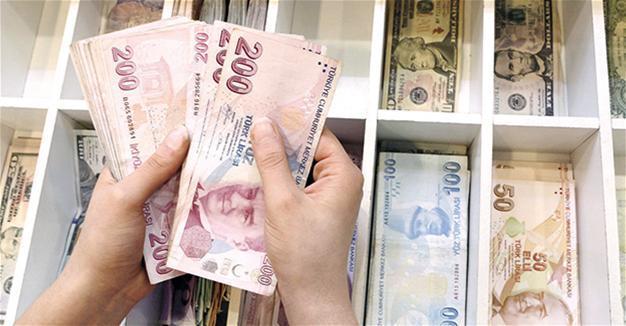Turks get richer overnight due to revision in GDP per capita data
Hacer Boyacıoğlu - ANKARA

REUTERS photo
Turkey’s 2015 GDP per capita has increased from $9,130 to 11,014 after the Turkish Statistics Institute (TÜİK) revised how it calculated the figure.Around 80 million Turks got a nearly 20 percent boost to their average standard of living on Dec. 12 – on paper at least.
TÜİK said 2015 GDP stood at $861 billion, from $720 billion before the revision – adding $141 billion to the size of the economy virtually overnight. Per capita income was revised from $9,257 to $11,014, in line with the country’s bid to meet the standards of the European Union it aims to join.
The country’s 2015 GDP was thus revised from more than 4 percent to 6.2 percent.
“Some might claim that TÜİK put this amount of money into people’s pocket overnight. We actually now have more accurate estimates on how much money people put into their pockets. I mean, we are trying to measure the national income in a better manner,” said TÜİK’s deputy chair, Mehmet Aktaş, adding that the income would further increase if other revisions were made.
Aktaş said such revisions were not only conducted in Turkey but in many other countries as well.
The institution took 2009, when Turkey’s economy contracted 4.7 percent, as the base year, but it used the 2012 data for the country’s calculations.
“We have defined 2009 as the base year, mainly as we took the prices of that year as the base. Yet, we took 2012 as the matching year, which is more important. 2012 was thus considered by us as the year when the general economic panorama emerged,” he said.
The main revision was completed within the scope of the compliance with the System of National Accounts (SNA-2008) and the European System of Accounts (ESA-2010). GDP was calculated using annually finalized data, based on production, expenditure and income approaches, regardless of periodic GDP estimates.
Quarterly GDP estimates were revised in the last five years with a new independent account, according to TÜİK officials.
According to TÜİK officials, due to the inefficiencies in the national income administration and Social Security Institution data ahead of 2009, they found no chance about compiling the data prior to 2009.
“As we had the data for 2009, we took that year as the base year. We, however, used supply and demand tables from the year of 2012,” they said.
Aktaş also noted that Turkey’s average GDP growth in 2015 rose to over 6 percent mainly due to the revision in construction data set.
While the share of the investments was 20.4 percent in the previous set, this has now been revised up to 29.7 percent, he added.
“Some 90 percent of this rise resulted from the construction sector. This section will of course be questioned by professionals. We have been questioning ourselves over the last 1.5 years. We were shocked when we had seen the 1998 data. In a bid to reach more accurate data, we also included the social security data to the calculations,” he said.
One of the most surprising revised data was seen in saving rates, as the country’s saving rate was revised up to 24.8 percent from the previous 15 percent.
















